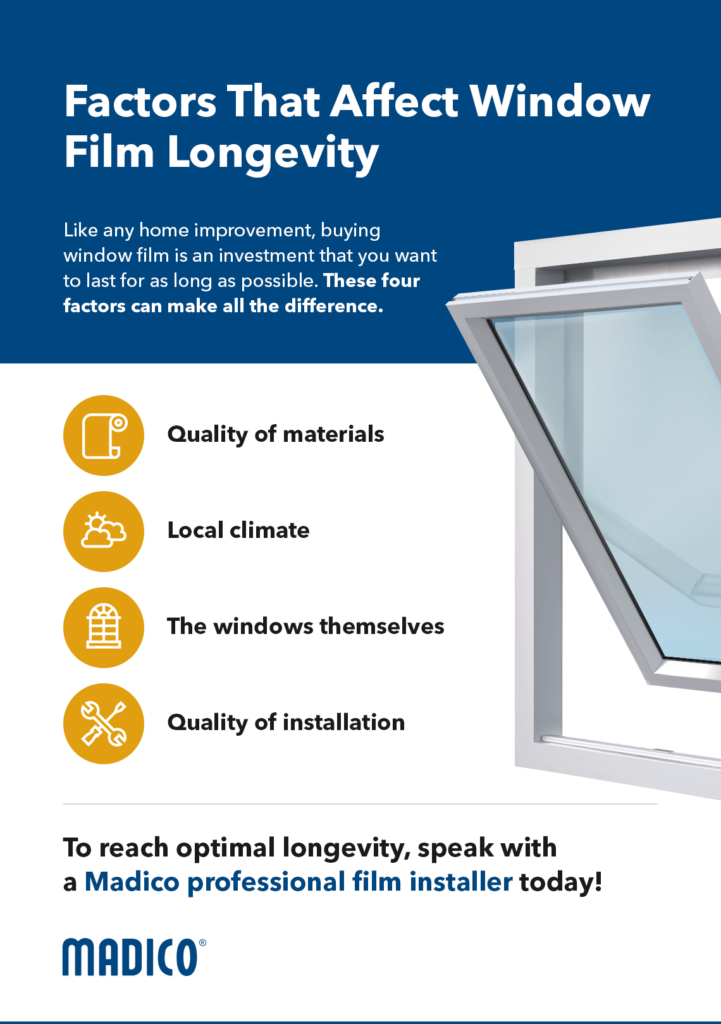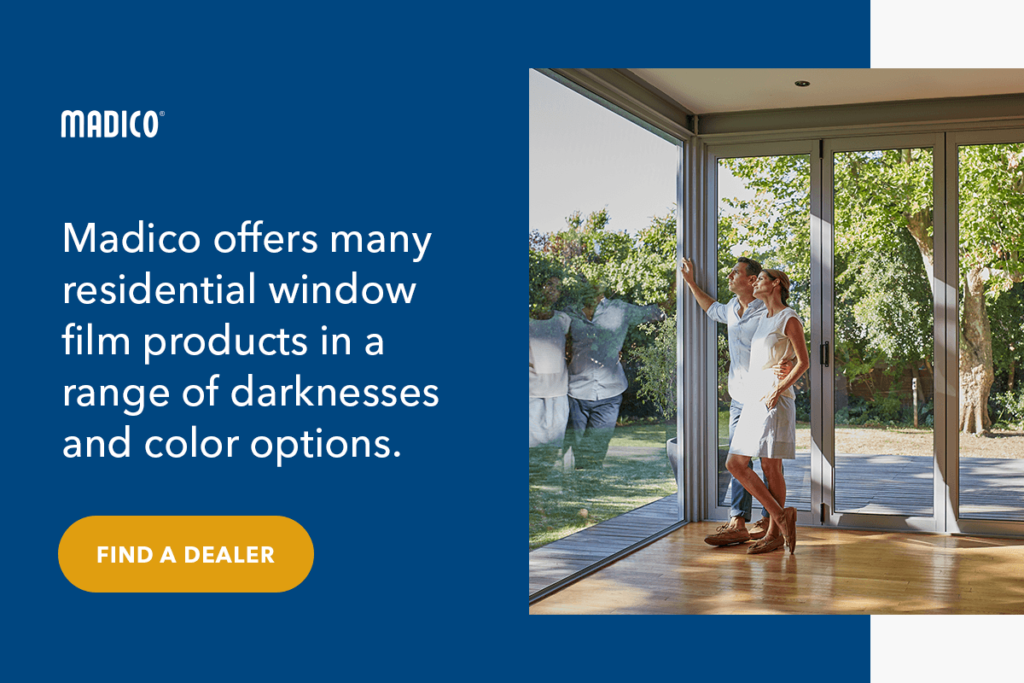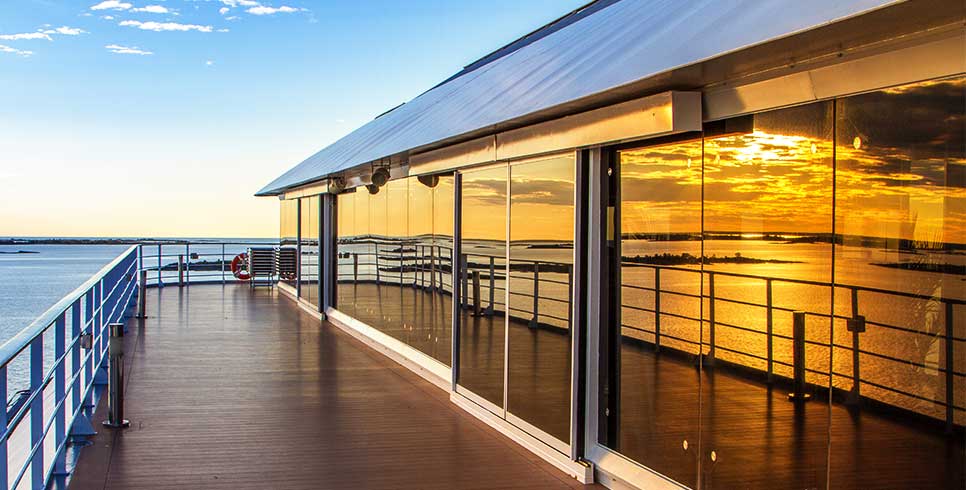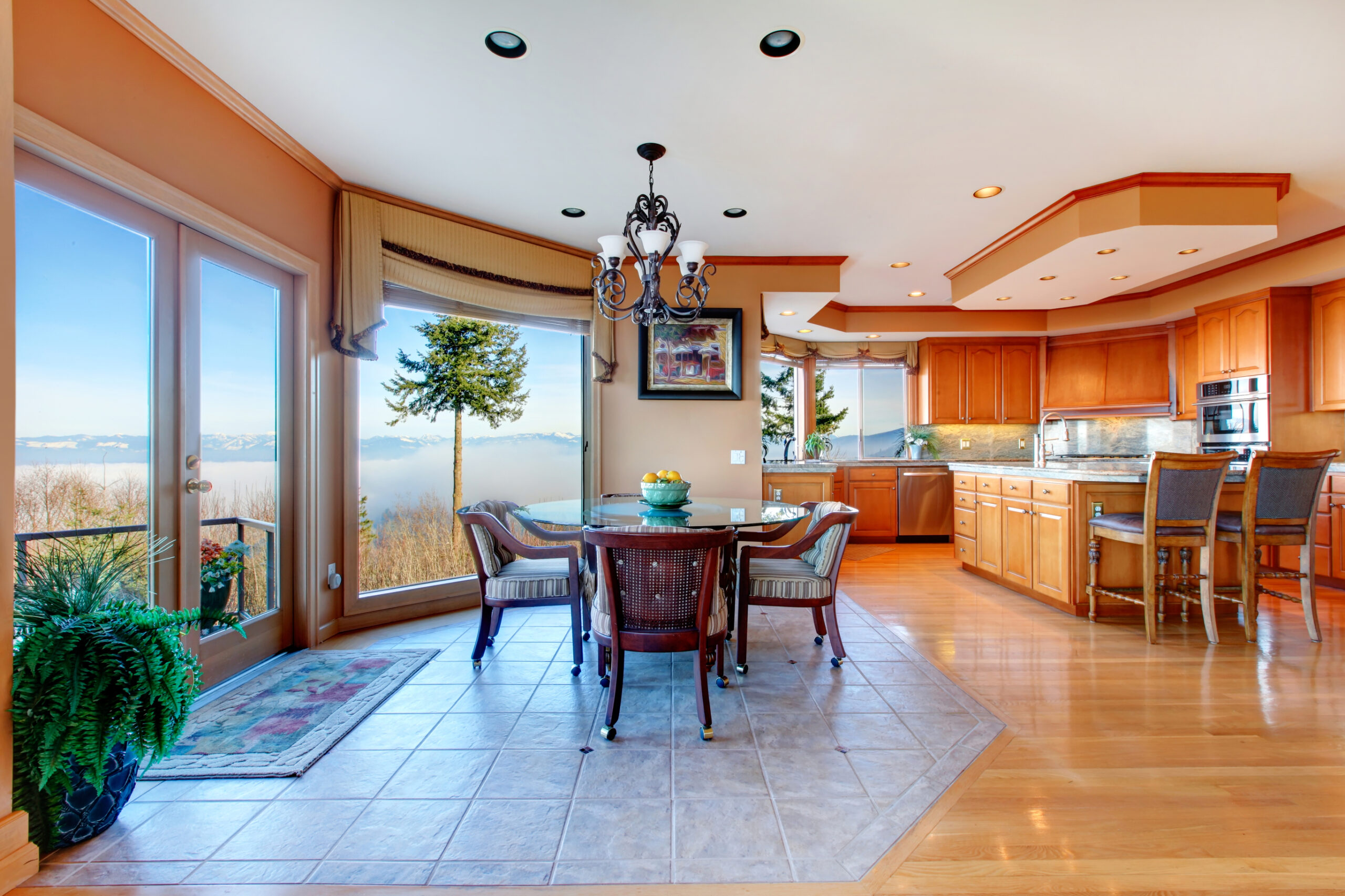Architectural window film can offer many benefits to homeowners, from mitigating excessive heat gain and glare to providing energy savings and added security. Estimating your window film’s life span can be an essential deciding factor for many homeowners considering an installation. So, how long will window tinting systems last and continue to maintain their performance? While the exact timeline depends on a few factors, with a little maintenance, you’ll be able to enjoy your window treatment for many years to come.
Factors That Affect Window Film Longevity
Under the right conditions, quality film for windows can last for as long as you own your home. Many homeowners have gotten 20 years or more out of their tinting systems. A few factors may influence how long the film lasts on your own windows, including:
- Quality of materials: High-end window films, like those manufactured by Madico®, Inc., are made with the highest quality dyes, adhesives and laminates. UV-blocking polyester extends the life of a window tint and slows fading, as do extruded dyes and metal deposits. A lower quality film may start to show signs of fading within a few months.
- Local climate: Excessive heat, wind or other weather conditions can wear on your window film over time. Meanwhile, exposure to sunlight can cause window tinting films to fade, albeit slowly. If you live where the climate is cooler and milder, your window films may last longer than they do in the Southern heat.
- The windows themselves: Windows on the north and south side of your house may outlast those on the east and west because they absorb less direct sunlight. Meanwhile, your windows’ current conditions may also affect the film’s life span. An older window with more wear and tear may not provide a smooth, even surface for the adhesive.
- Quality of installation: It takes months of training to learn proper window film application techniques. A professional will take great care to achieve a smooth, bubble-free application. They’ll ensure the film adheres entirely to the window’s surface so it doesn’t peel. They’ll install the product when the weather aligns to ensure the adhesive can set properly. A professional installer can also recommend the best product for you. If your windows will be in direct sunlight, for instance, they may recommend films with better UV protection or a darker tint.

Signs You Should Replace Your Window Film
Perhaps you already have tinting in place and you aren’t sure if it’s reached the end of its life span. It might be time to replace your window film if you notice any conditions such as:
- Fading: Damaging UV rays from the sun cause a chemical reaction with the tinted film’s dye. Over time, this lightens the window tinting.
- Discoloration: Low-quality window tint may turn purple due to the particular way the dyes fade over time. This discoloration happens because yellow dyes are more volatile than red and blue. Yellow will be the first to fade, leaving a purple dye mixture behind. Quality manufacturers prevent their films from turning purple by matching the fade times of individual dyes so the yellow will fade at the same rate as the red and blue dyes. UV-protective additives can also help.
- Bubbles: As heat slowly breaks down the film’s adhesive, air pockets may form. Bubbles can also result from poor installation. If the installer leaves too much mounting solution under the film, air pockets will develop as the liquid evaporates.
- Cracking: Sun damage from both heat and visible light can cause the film to turn brittle. When the window absorbs an impact, the film may crack.
- Peeling: With time, the film may start to lift around the edges or near cracks. This peeling also occurs with prolonged heat exposure, which causes the film’s adhesive chemicals to break down slowly.
New Homes With Old Film
If you are buying a home that already has film on its windows, it’s beneficial to consult with a professional film installer to evaluate the film’s integrity. As the home’s new owner, you should learn if the film on the windows is a quality, professionally installed product or an inferior DIY product.
A professional installer can also estimate the current age of your window film and let you know how soon you should expect to replace it. Remember that film installed on windows that receive direct sunlight, such as skylights, may need to be replaced more frequently than other windows in your home. So, some of your films may need replacing while others have a few more years left.
Manufacturer’s Warranty
If you select a quality, professionally installed window film from a reputable manufacturer like Madico, it will often come with a warranty for as long as you own your home if you’re the original purchaser of the window treatments. The warranty covers installations in North America for issues from peeling and bubbling to cracking and demetallization. With that, you can experience the benefits of your home’s window film for decades!

Consult a Professional Installer
Madico’s professional film installers can provide you with valuable information on your window and film performance. If you think your window film needs to be replaced, or you’re ready to reap the benefits of a long-lasting tint system for the first time, locate a dealer near you.
Madico offers many residential window film products in a range of darknesses and color options. These window films provide many benefits, including solar control, which protects your skin and home interiors from UV damage. Tinting also filters visible light for glare reduction. Meanwhile, reflecting sunlight can also prevent heat gain and improve your window’s insulation, offering energy efficiency savings. Madico window films will also keep shattered glass in place for security and safety benefits, and decorative solutions can add reflective coatings and frosted textures to your windows.
When you can gain so many benefits and you know the film will last for years to come, installing Madico window film becomes a no-brainer. Find the right film for your home and contact your local Madico installer today.




